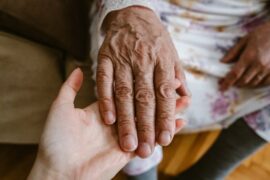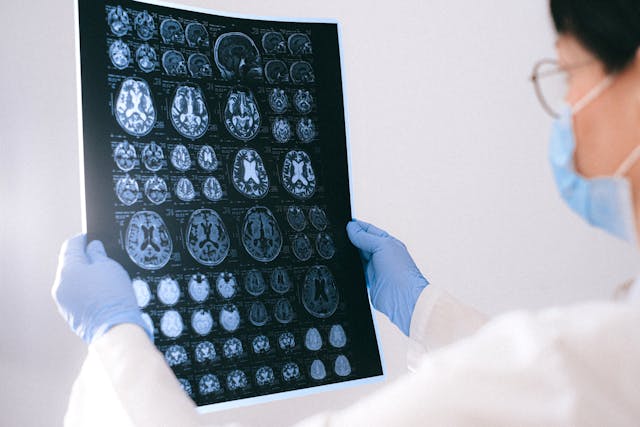Living with a brain injury can be a life-altering experience, affecting not just the individual but also their family and friends. Navigating through the complexities of recovery and adaptation can be challenging, but fortunately, there are numerous resources available to support those living with a brain injury. These resources can provide medical advice, emotional support, rehabilitation services, and assistance in adapting to new ways of living.
Here, we explore five essential resources that can make a significant difference in the lives of those affected by a brain injury.
1. Specialist Medical and Rehabilitation Services
One of the most critical resources for individuals with brain injuries is access to specialist medical and rehabilitation services. These services offer comprehensive care tailored to the unique needs of each patient, including physical therapy, occupational therapy, speech and language therapy, and neuropsychological support. Rehabilitation centres often provide an interdisciplinary approach, where different specialists work together to create a personalised treatment plan.
These services are not just about physical recovery; they also focus on cognitive rehabilitation, helping patients regain skills such as memory, attention, and problem-solving. Many centres offer both inpatient and outpatient services, ensuring continuous support during the recovery process.
2. Support Groups and Networks
Emotional and psychological support is just as vital as physical rehabilitation. Support groups provide a safe space for individuals living with a brain injury, as well as their families, to share experiences, challenges, and successes. These groups can be found through local community centres, hospitals, or online platforms.
Support groups offer:
- Emotional support from peers who understand the experience
- Information and advice on coping strategies
- A sense of community and belonging
- Opportunities to build friendships and social connections
- Access to guest speakers, workshops, and educational sessions
In addition to traditional support groups, online forums and social media communities can provide 24/7 access to support and advice from others in similar situations.
3. Financial Assistance and Legal Aid
The financial burden of living with a brain injury can be overwhelming, with costs ranging from medical treatments to home modifications and ongoing care needs. Fortunately, several organisations offer financial assistance and legal aid to help alleviate these pressures.
In the UK, individuals may be eligible for benefits such as Personal Independence Payment (PIP), Employment and Support Allowance (ESA), or Universal Credit. Additionally, charities and non-profits often provide grants or funding for specific needs, such as adaptive equipment or travel costs for medical appointments.
Legal aid is also available to help individuals with brain injuries navigate issues related to compensation claims, employment rights, and social care entitlements. Specialist solicitors can provide expert advice and representation, ensuring that individuals receive the support and compensation they are entitled to.
4. Educational and Vocational Support
Returning to work or education after a brain injury can be daunting, but with the right support, many individuals can achieve their goals. Educational and vocational support services offer guidance on adapting to new learning or working environments, including making necessary adjustments or accommodations.
These services can include career counselling, job placement assistance, and workplace adjustments, such as flexible hours or modified duties. Educational support might involve tailored learning plans, one-on-one tutoring, or the provision of assistive technologies to help with studying or coursework.
Many organisations also offer training programmes specifically designed for individuals with brain injuries, focusing on developing new skills or retraining in a different field. This support is invaluable for rebuilding confidence and independence.
5. Brain Injury Charities and Organisations
Several charities and organisations across the UK are dedicated to supporting individuals with brain injuries and their families. These organisations offer a range of services, from helplines and counselling to advocacy and information resources. These include Headway and Brainkind.
These organisations often run awareness campaigns, support research into brain injury treatment and rehabilitation, and provide educational materials to help individuals and their families better understand the condition. They can also offer guidance on navigating the healthcare system and accessing other relevant services.
A Life Beyond Brain Injury
Living with a brain injury is undoubtedly challenging, but with the right resources, individuals can regain control over their lives and achieve a sense of normality. From specialist medical care to emotional and financial support, these resources provide a lifeline for those affected, helping them to rebuild their lives and thrive. The journey may be long, but with the right support, it is possible to lead a fulfilling and rewarding life beyond brain injury.
Maria Bedford
More from Maria Bedford
Fast And Effective: The Pros And Cons Of Accelerated TMS Therapy
Read More
You may also like

4 Little-Known Methods For Attaining Arthritis Relief

Legal Aspects of Dealing With Injuries That Harm Your Health

How Does Cholesterol Affect Your Heart Health?

